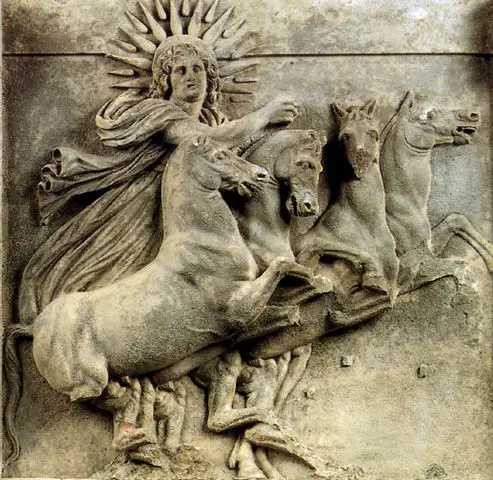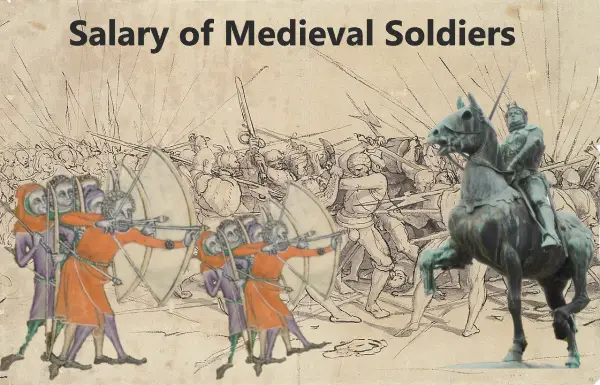
When it comes to medieval armies one of the most popular questions we get asked is just how much money a medieval soldier would have made? Well on average a medieval soldier would have made between nothing and enough to afford to retire after one campaign depending on their status and skillset. Here is everything you will ever need to know.
Generally speaking, a medieval soldier would have made between 1.30 and 29.0 grams of silver per day depending on 3 main factors. First, what was the soldier’s job within the medieval army? Second, was the soldier a mercenary, or were they conscripted to fight? Third, what army did the medieval soldier fight in? All of these factors would contribute to how much a medieval soldier would get paid.
Here at The History Ace, I pride myself on providing the best history articles on the internet. When appropriate I link out to my sources for you to view and verify. If at the end of this article, you enjoyed the content then consider subscribing to the free newsletter and sharing around the web.
Without further ado, here is everything you will ever need to know about how much money medieval soldiers made.
Salary Factor 1: What Job the Medieval Soldier Had
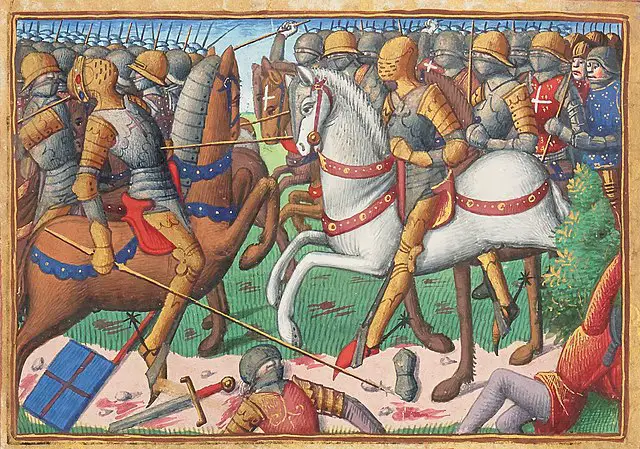
One of the main factors that contributed to how much a medieval soldier would have been paid was the job that the soldier had within the medieval army.
While we do not know how much each medieval soldier made we do have some accounts from primary sources on the average salary paid out to each soldier.
Here is a table that demonstrates how much each medieval soldier got paid in England between the 11th century and 14th century.
| Job of Soldier | Average Pay in Grams of Silver Per Day | Date Range | Money Today | Source |
| Knights | 8.1-28.8 | 11th-13th century England | $6.15-$21.88 | Scutage Rages in 11th-Century England |
| Archers (mounted and foot) | 3.6-8.1 | 11th-13th century England | $2.7-$6.15 | Wages in 12th and 13th Century England |
| Infantry Seargents (mounted and on foot) | 5.1-16.2 | 11th-13th century England | $3.87-$12.3 | Wages in 12th and 13th Century England |
| Standard Infantry | 1.35-2.7 | 11th-13th century England | $1.02-$2.05 | Wages in 12th and 13th Century England |
As you can see from the above table being a knight paid the most amount of money. However, even a medieval knight would have been paid only $21.88 a day in today’s money. However, we have to keep in mind that living expenses were drastically lower during the medieval era and a majority of your essentials were provided for by either your fief or lord.
Essentially, this can be viewed as simply spending money given to you by a marshall or leader of the army.
Further, being a member of a medieval army gave you rights to a portion of the raiding that took place when a majority of medieval armies took control over an area. This was where a majority of your income would come from.
The reason that certain jobs such as archer paid more than the average infantry soldier was because of the skillset needed. A medieval archer would practice their entire lifetime. English longbowmen for example would practice so much that their skeletons have calcified right arms which indicates a lifetime of drawing heavy bowstrings.
An infantry soldier on the other hand would just be given basic weapons training and told to march toward the enemy. Because of this infantry were hardly paid anything and were seen by many lords as being expendable.
Salary Factor 2: Were The Medieval Soldiers Mercenaries Or Were They Concscripted
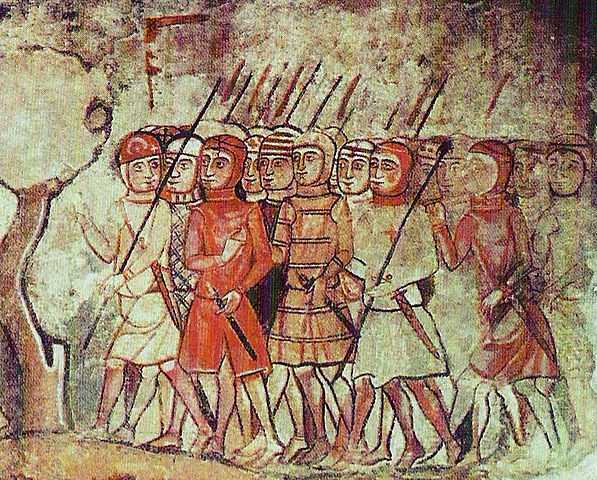
There existed two types of medieval soldiers; conscripted and mercenaries. Depending on which type you were drastically impacted how much money you would have made.
Sometime around the 10th century AD medieval Europe began to impose conscription upon the peasants of the land. This system of conscription would allow the king or lord to summon the free peasants of the land to have them enter into forced military service. The peasants were responsible for arming themselves with whatever they had and then showing up for military service.
As you might imagine these forced military peasants hardly made any money at all. While they were paid out in a portion of the raided loot they also received a small salary later on. However, since they were obligated to serve the nobility of the land hardly paid them anything.
Now, the other type of soldier in medieval Europe was a mercenary. From the 10th century up until the early 15th-century medieval mercenary companies called free companies roamed around Europe selling their military service to the highest bidder.
The pay for these medieval mercenary companies was high. In 1304 a Spanish lord had to pay off the mercenary Catalan Company by providing them with 100 horses and enough money to pay every single mercenary soldier to essentially go home and retire.
If you were a medieval soldier in a mercenary company your pay would have been high enough that you could eventually stop fighting and hopefully retire as a free peasant owning your own land. That is if you survived the wars.
As such we can assume that a medieval soldier would have his pay tripled when compared to the pay of a conscripted medieval soldier. This data comes from accounts of medieval mercenary companies disbanding and retiring.
Salary Factor 3: What Army Did The Medieval Soldier Fight In
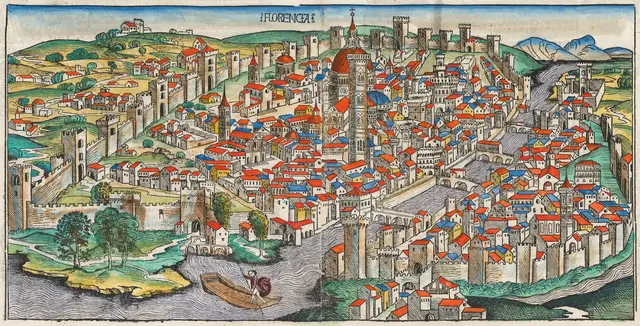
The final factor that influenced the pay of medieval soldiers was just what army they fought in. Some medieval soldiers would be paid nothing because they were forced into military service while other soldiers would get paid quite well for the medieval era.
Generally speaking, the wealthier the town or kingdom that you were serving the better equipped and paid you would have been. This was because you would have lived within this town or kingdom and would have had the resources to obtain good armor and weapons for the military campaign.
With these resources, you could have been paid more by the lord or king to serve. Men at Arms for example were paid based on how many horses and pieces of equipment they brought to battle. This was because the average medieval battle would last all day and the need to change into new and fresh equipment was vital.
This is why the table above has ranges for medieval soldier pay. It depended on the current state of the realm and your skills/equipment.
Generally speaking however, large autocratic realms such as England, France, and Florence were capable of paying large amounts of money to their soldiers. This was because of a central and efficient tax system that could raise funds for a large campaign. Because of this when these realms went to war against each other soldiers could position themselves to make a lot of money and improve their lives.
This is why during the 100-Years’ War that was waged between the kingdoms of England and France so many medieval mercenary companies became extremely wealthy. These kingdoms were so large that they could afford to hire and pay for skilled soldiers.
Simply put, one of the main factors that contributed to the pay of medieval soldiers was what kingdom or realm they served. Wealthy realms could afford to pay their soldiers better.
Conclusion
There you have it; everything you ever need to know about just how much a medieval soldier got paid.
The average salary for a medieval soldier across all ranks and social status depended on several factors such as the soldier’s rank, skillset, and the kingdom they served. Generally speaking however, a good soldier could work hard and rise up the social ladder if they played their cards right.
I hope you enjoyed this article. I work hard to bring you the best and most accurate history articles on the internet. If you liked this article and want to see more then share TheHistoryAce around the internet. It helps me help others appreciate history.
Further, you can check out some of the other articles below.
-
How Much Money Medieval Soldiers Made

Looking for all the information regarding how much medieval soldiers got paid? Well look no further, here is the salary of medieval soldiers.

